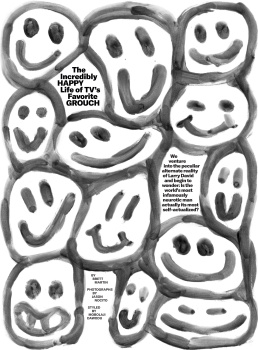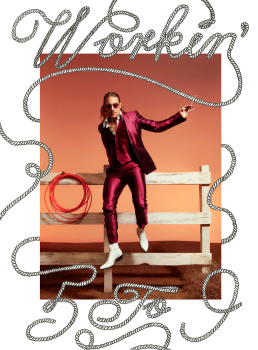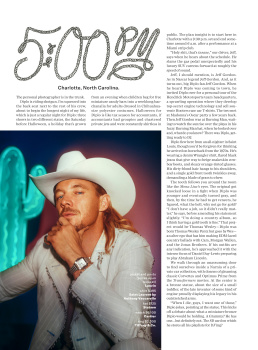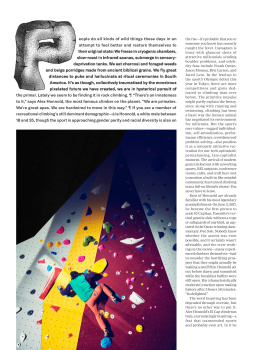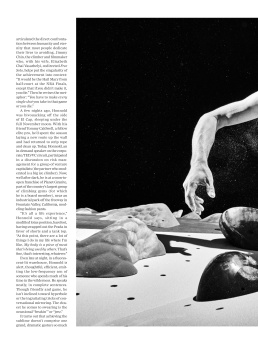-
Share with us... Your Best & Worst Collections of Haute Couture F/W 2025.26
-
Xenforo is upgrading us to version 2.3.7 on Thursday Aug 14, 2025 at 01:00 AM BST. This upgrade includes several security fixes among other improvements. Expect a temporary downtime during this process. More info here
You are using an out of date browser. It may not display this or other websites correctly.
You should upgrade or use an alternative browser.
You should upgrade or use an alternative browser.
GQ February 2020 : Larry David by Jason Nocito
- Thread starter Marc10
- Start date
TommysBaby
Well-Known Member
- Joined
- Feb 1, 2019
- Messages
- 184
- Reaction score
- 153
I was looking forward to a Larry David cover but wow. They could've done better than this.
Benn98
Well-Known Member
- Joined
- Aug 6, 2014
- Messages
- 42,533
- Reaction score
- 20,642
I was looking forward to a Larry David cover but wow. They could've done better than this.
God, so was I! This is really quite awful, like a meme.
Call me cliche, but I was hoping for a profile more in the vein of Clint Eastwood's denim cover. Larry is, imo, one of the funniest and irreverent American comics. Loved and respected his show way more than Seinfeld. I don't know about 'style god' though. He deserved way better than this afterthought cover.
It does make sense that he's covering GQ right now because pop culture seems to be slowly turning against political correctness. And that's very much what he's about.
ellastica
Well-Known Member
- Joined
- Jul 7, 2010
- Messages
- 3,482
- Reaction score
- 344
The body proportions look wonky but I find it endearing. Larry brought it and his no f*cks fashion styling or lack thereof, well 'I'm here for it' to mimic cool internet speak. That's a good ensemble, I approve. I'm picking this up!
MON
Well-Known Member
- Joined
- Jun 20, 2009
- Messages
- 12,635
- Reaction score
- 5,188
Non-US editors would be fired for producing this.
I loathe how this man thinks he can produce this mess and get away with it because he is in the good favors of the powers that be.
GQ is dead. It no longer is what it claims to be. International editions easily beat this edition without even trying - simply because they have taste.
I can’t believe Details died to save this mess
I loathe how this man thinks he can produce this mess and get away with it because he is in the good favors of the powers that be.
GQ is dead. It no longer is what it claims to be. International editions easily beat this edition without even trying - simply because they have taste.
I can’t believe Details died to save this mess
D
Deleted member 141523
Guest
F ck, this is bad. Horrendous cover.
ck, this is bad. Horrendous cover.
 ck, this is bad. Horrendous cover.
ck, this is bad. Horrendous cover.Hafyiez wafa
Well-Known Member
- Joined
- Jul 19, 2018
- Messages
- 960
- Reaction score
- 1,191
Does GQ USA never features any model to be on the cover?
tigerrouge
Well-Known Member
- Joined
- Feb 25, 2005
- Messages
- 18,729
- Reaction score
- 9,268
So women's magazines attempt to produce ever more arty covers with people doing weird things, but on the front of a leading men's magazine, the person just stands there 'being himself'.
And where are the 'values'? Where's the Conde Nast manifesto for men?
Are men exempt from having to fret about their expensive purchases, or having the burden of taking the future of the world into consideration when they're buying something nice for themselves? And where are the babies?
And where are the 'values'? Where's the Conde Nast manifesto for men?
Are men exempt from having to fret about their expensive purchases, or having the burden of taking the future of the world into consideration when they're buying something nice for themselves? And where are the babies?
Benn98
Well-Known Member
- Joined
- Aug 6, 2014
- Messages
- 42,533
- Reaction score
- 20,642
So women's magazines attempt to produce ever more arty covers with people doing weird things, but on the front of a leading men's magazine, the person just stands there 'being himself'.
And where are the 'values'? Where's the Conde Nast manifesto for men?
Are men exempt from having to fret about their expensive purchases, or having the burden of taking the future of the world into consideration when they're buying something nice for themselves? And where are the babies?
Fair point! Maybe the GQ man is still reeling over Mr Tye-dye telling them they should start wearing dresses and makeup.
Not to sound sexist, but marketing differs vastly for women and men. And that's what Vogue Values are, a fad, a marketing strategy. It would be impossible to replicate that same approach for men because it's not that easy to pull the wool over their eyes. A perfect example of that is Farneti who dared the 'no photoshoot' theme for Vogue Italia but not for L'Uomo. Despite the fact that L'uomo is packaged with the main issue for subscribers, or will appear on newsstands at the same time as the January issue.
As for babies, most men consider it their inherent right to breed so glamorising that as a 'value' would be laughable.
KoV
The Fault in Our Czars
- Joined
- Sep 17, 2009
- Messages
- 6,320
- Reaction score
- 9,714
I mostly agree with you regarding the marketing angle, but in GQ's defense they may not have had as much distance to make up in some areas and they've already been changing in others. Diversity, for instance. In 2019 there were only 3 months in which a person of color was not featured on the cover. And that didn't come out of nowhere. Even under Jim Nelson, In 2017, there were only 4 months without a person of color on the cover. Compare those stats to Vogue. Some might say GQ has a history of sexism, and I agree, but I also think in recent years and especially in the past year there has been an increase in female representation within the magazine in terms of writers, and the depiction of women in the magazine is more balanced and less overtly sexual. A woman in GQ can now be more than just arm candy or an object of lust. I also think, whether you believe they've been successful in doing so or not, GQ has made attempts to direct a conversation where men look inward about how to be better in the world. A quasi-rejection of "toxic masculinity", at least on the surface. I can't recall if GQ has done much to address sustainability. However, I believe I read a study that in the USA, women spend about 75% more on clothing than men do in a year, so perhaps your average GQ reader is already consuming less or engaging in more sustainable practices (within the context of fashion) than your average Vogue reader?
tigerrouge
Well-Known Member
- Joined
- Feb 25, 2005
- Messages
- 18,729
- Reaction score
- 9,268
Men might not need to buy as many items of clothing as women, but they still consume all sorts of other resources which fall under the umbrella of fashion and style.
It seems this selfless, sacrificing environmental concern we're supposed to have is the job of women, according to Conde Nast.
It seems this selfless, sacrificing environmental concern we're supposed to have is the job of women, according to Conde Nast.
KoV
The Fault in Our Czars
- Joined
- Sep 17, 2009
- Messages
- 6,320
- Reaction score
- 9,714
Generally speaking, I don’t think one gender needs to buy significantly more clothing than the other. Certainly not 75% more.
But as Benn98 said, isn’t it all just marketing? If Vogue wanted women to actually engage is selfless sacrificing environmental concern, they’d be telling their readers to shop at Goodwill and in their own closets. Instead, some editions are going on about Vogue Values whilst putting cover models in thousands of dollars worth of new, leather Balenciaga. Vogue Values just makes wine readers feel better about their rabbis consumption, which the magazine still fully endorses. I’m not saying no one involved has altruistic motives or at least wants to move the needle, but as a global branding strategy I think it’s just another marketing ploy.
Also GQ UK put Greta Thunberg on the cover, wagging her finger at the reader, so that’s one example of them not just blatantly ignoring environmental concerns.
But as Benn98 said, isn’t it all just marketing? If Vogue wanted women to actually engage is selfless sacrificing environmental concern, they’d be telling their readers to shop at Goodwill and in their own closets. Instead, some editions are going on about Vogue Values whilst putting cover models in thousands of dollars worth of new, leather Balenciaga. Vogue Values just makes wine readers feel better about their rabbis consumption, which the magazine still fully endorses. I’m not saying no one involved has altruistic motives or at least wants to move the needle, but as a global branding strategy I think it’s just another marketing ploy.
Also GQ UK put Greta Thunberg on the cover, wagging her finger at the reader, so that’s one example of them not just blatantly ignoring environmental concerns.
Similar Threads
- Replies
- 4
- Views
- 4K
- Replies
- 32
- Views
- 6K
- Replies
- 21
- Views
- 8K
- Replies
- 19
- Views
- 2K
Users who are viewing this thread
Total: 1 (members: 0, guests: 1)
New Posts
-
-
-
-
Jonathan Anderson - Designer, Creative Director of JW Anderson & Christian Dior (9 Viewers)
- Latest: Caffeine
-


